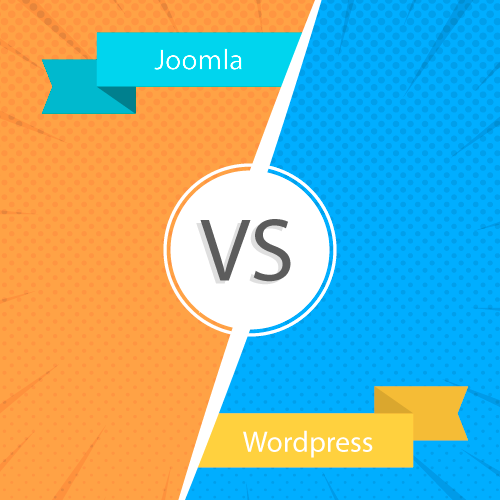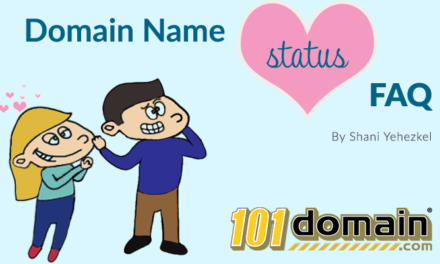
Joomla and WordPress are two of the most popular Content Management Systems (CMSs) for small business and enterprise websites. They are both easy to use, and offer a powerful set of tools for both improving website speed and growing your website to attract more customers.
Enterprise websites require a different set of features from a CMS, than a small business. Most importantly, an enterprise CMS should be inherently scalable, in order to grow as your company does.
For example, some of the more advanced features of both WordPress and Joomla – SEO, security, and customization – are more important to enterprise websites than the average website owner.

Enterprise Website CMS: Joomla vs. WordPress
In this article, we’ll compare the two platforms and look at how each performs in an enterprise environment.
1. Integration
One of the most important factors in choosing a CMS for an enterprise website is the degree to which it is able to integrate with your other systems. This includes not just social media marketing platforms, but also more complex customer-focused tools like appointment software and e-commerce marketplaces.
This is, in fact, one of the major differences between the two platforms. WordPress started life as primarily a blogging platform, whereas Joomla was more geared toward portal-like websites.
Though both have developed significantly since the early years, WordPress has one huge advantage in this area: third-party plugins. These community-developed tools make it easy to set up an online store or add social media outreach tools to your website. Overall, they ensure that WordPress is compatible with far more external systems than Joomla.
2. SEO
Compare the level of Search Engine Optimization (SEO) available in basic installation of both WordPress and Joomla, and the two platforms appear to be pretty equal. Both are designed to generate HTML that is well understood by search engines. In addition, Joomla allows you to manually set the meta data of your pages.
Comparing the two platforms is a little unfair to Joomla, though, for one huge reason: Yoast. Yoast is a third-party plugin that is incredibly popular for improving the SEO performance of WordPress pages, and gives enterprise websites a breakdown of how pages are performing as well as rating the post’s readability. At the moment, the closest analogous Joomla extension is Easy Frontend SEO, but in truth it’s no match for Yoast.
3. Content Management
When it comes to detailed content management for enterprise websites, WordPress and Joomla perform (almost) equally well, albeit with one huge difference. Both are mature SaaS platforms that can be used to create any kind of site you need, but the difference is that WordPress is much easier to use.
Whether this is an advantage will depend on your level of technical nous. Joomla can be notoriously complex, but the excellent documentation it comes with is a fantastic guide to implementing its more advanced features. On the other hand, if you (or your team) prefer to use a platform that is more straightforward, then WordPress is the way to go.
4. Security Is Essential for Enterprise Websites
Though all website owners should take the security of their site seriously, this is particularly important for enterprise websites for a number of reasons. For a start, enterprises are a target for identity theft. In addition, the rise of exotic attack vectors like reverse domain name hijacking means that a customer’s sensitive information like business credit card details and addresses are increasingly at risk from hackers.
Ironically, the element of WordPress that has given it the edge in the tests above—the wide availability of third-party plugins—is what actually makes Joomla more secure as a platform. WordPress is a victim of its own popularity, in the sense that many hackers specialize in hacking WordPress installs or installing ransomware, which can be difficult to stop.
In addition, most enterprise websites will end up running hundreds of different plugins, each of which needs to be monitored for security vulnerabilities due to the dangers of running unused plugins and themes.
This is not to say that WordPress is inherently insecure. It is certainly possible to make it safe, but it requires a little more work than Joomla. The basic principles of securing your enterprise website apply to both platforms: you should use strong passwords and a secure VPN to keep your data safe. Either system will be able to secure your data if you keep up with your cybersecurity resolutions for 2020.
4. Enterprise Websites Require Customization
When it comes to customizing the look and feel of their website, small businesses will simply make use of the (mostly) excellent themes that are available for both WordPress and Joomla. Enterprise websites, however, likely require a deeper level of control over every aspect of their site.
Enterprises will typically need system access to reports, which are provided by default by most major malware scanners, as well as web analytics to track how visitors are using your site and a deeper level of control over the design of it in order to make it consistent with brand image and other consumer-facing systems.
When it comes to customization, there is no competition between the platforms: WordPress wins. The huge popularity of the site means that there are highly professional themes for the platform, and most managed hosting provides today provide WordPress-specific tools for improving site performance and customizing the way it looks and feels.
Final Thoughts: Joomla vs. WordPress for Enterprise Websites
Both Joomla and WordPress offer similar features in integration, SEO, content management, and security. The popularity and use of third-party plugins makes WordPress more of a target for hackers looking to exploit sensitive customer information. However, with the right security features in place you can keep your data safe using both platforms. The main difference of Joomla va. WordPress for enterprise websites comes down to customization—in which WordPress takes the cake.

Dan Fries
Dan Fries is a freelance writer and full stack Rust developer. He looks for convergence in technology trends, with specific interests in localism and micromobility (🛴💨). Dan enjoys snowboarding and is based in Hong Kong with his pet beagle, Teddy.

Your cornerstone to an effective domain name and brand management strategy.
Contact Us: +1.888.982.7940 | [email protected]









